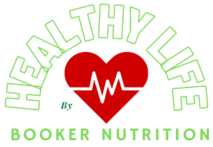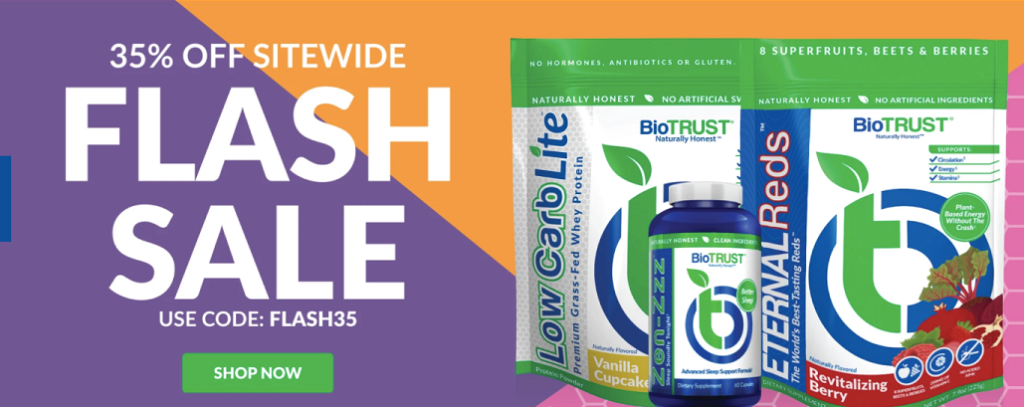
Sparkling water is a refreshing and hydrating beverage—and it’s extremely popular. In fact, people across the world collectively spend about $29 billion dollars annually on this fizzy, bubbly beverage.1
All of this hype may make you wonder if sparkling water is good for you. But as long as you’re choosing a sparkling water without added sugar or artificial sweeteners, you’re making a good choice. Learn more about the health benefits—and a few potential drawbacks—of sparkling water below.
What is Sparkling Water?
Sparkling water (or carbonated water) is tap water infused with carbon dioxide for carbonation. It won’t hydrate you any better than tap water, but you may prefer the tingly bubbles over the taste of flat water.
But not all sparkling waters are created equal, so you’ll want to read the ingredients before buying or drinking one. If you see sugar, artificial sweeteners or artificial coloring (typically used as a flavoring or as a preservative) on the label, skip the bubbly water and opt for tap water instead.
Sparkling water is regular water that contains carbon dioxide, which makes it fizzy and bubbly. Other names for sparkling water include mineral water, seltzer water, club soda, soda water, and carbonated water. There also are many varieties of sparkling water on the market. These include:
- Natural sparkling water: This type of water is naturally found emerging from springs, then bottled for home use. It is also called mineral water, because it contains trace amounts of minerals such as calcium and magnesium.
- Machine-made sparkling water: This water is made by adding pressurized carbon dioxide to plain water. It can be machine-made and bottled in factories, or it can be made at home with carbonated water makers.
- Flavored sparkling water: Some commercial brands add natural or artificial fruit flavors to sparkling water. Common flavors include lemon, lime, grapefruit, and berry. Some sparkling waters are also sweetened with sugar or artificial sweeteners.
Potential Health Benefits of Sparkling Water
Similar to flat water, sparkling water is a calorie-free, sugar-free beverage that contributes to healthy hydration. It is an excellent beverage choice and offers several health benefits. Here are just a few.
Boosts Hydration
About 62% of the human body is made up of water. We lose fluids daily through urine, breath, and sweat, and these fluids needs to be replenished to stay hydrated.
Water is a wonderful beverage for hydration because it contains no calories and no sugar. You can choose either flat or sparkling water—they are equally hydrating. The effervescence of sparkling water adds some pizzazz for people who find flat water boring.
Promotes Digestion
There is not a lot of current research on the digestive health benefits of sparkling water, but some past studies show positive results. One older study found that sparkling water may help ease constipation.
And another small study found that sparkling water may increase the feeling of fullness during and after meals. This may help people with appetite control. Of course, these studies have not been replicated, so more research is needed on the effect of sparkling water on digestion.
Potential Drawbacks of Sparkling Water
While sparkling water can be a good option for hydration, there are some potential drawbacks—especially if it is your go-to beverage of choice. Here are some things to consider when choosing sparkling water.
May Cause Dental Erosion
Sparkling water is more acidic than plain water. However, one study found that plain sparkling water and flat water—despite different acid levels—had the same neutral effect on tooth enamel. The researchers determined that drinking plain, unsweetened sparkling water will not damage your teeth.
That said, flavored or sweetened sparkling water may be more problematic. According to the American Dental Association (ADA), sparkling water with added citrus is even higher in acid than regular sparkling water, which increases the risk of damaging tooth enamel.
Lemon or lime sparkling water is fine to drink occasionally, but it is best enjoyed as part of a meal rather than as something you sip all day. Saliva in the mouth neutralizes the acid in the sparkling water, helping to prevent tooth erosion. However, sipping it all day constantly exposes teeth to acid, which can cause more damage.
The ADA also says that sparkling water with added sugars can increase the risk of developing cavities. Choose unsweetened sparkling water most often.
May Cause Gas or Belching
Some people find that the carbon dioxide in sparkling water may cause belching, gas, and bloating. For others, carbonated beverages trigger symptoms of heartburn or irritate their gastroesophageal reflux disease. If these symptoms bother you, choose flat water instead.
It’s also best to choose flat water during physical activity instead of sparkling water. The fizzy bubbles can cause gas during exercise, and it’s difficult to rehydrate by chugging carbonated beverages.
Lacks Nutrients
Plain sparkling water has no calories and does not contain any nutrients, such as protein, vitamins, or fiber. It is just water, so it does not contribute meaningful amounts of other nutrients to your diet.
Surprisingly, mineral water is also low in nutrients, despite its name. It sounds like it would be filled with minerals, but it only has negligible amounts. It does not contain enough minerals like calcium and magnesium to fulfill daily mineral requirements.
Why Moderation is Key
Sparkling water is safe for most people. However, make sure you select plain sparkling water instead of options with added sugars or artificial sweeteners.
As with any fluid, you can become overhydrated if you drink too much. The color of your urine is a good indicator of hydration status. Urine should be pale yellow. If it’s clear or you are urinating very often, you may be drinking too much fluid.
For some people, drinking sparkling water may lead to belching, bloating, and gas. If you experience these side effects, cut back and replace sparkling water with flat water.
Alternatives to Sugary Drinks
Sweetened drinks are the main source of added sugars in the typical American diet. Too much sugar is linked to an increased risk of chronic diseases, including type 2 diabetes, heart disease, and some types of cancer.
It’s a smart idea to replace sweetened drinks with water or sparkling water instead. Plain sparkling water is a great alternative to soda. It still has the fizz but does not contain any added sugars. It’s a great way to transition away from soda but still get the bubbles you crave. If you want to boost the flavor of sparkling water without sugar or artificial sweeteners, try:
- A few sprigs of fresh mint
- Basil leaves and cucumber slices
- A cinnamon stick
- A squeeze of citrus, such as lemon, lime, or orange
- A small handful of muddled berries
- Fresh ginger
- Pineapple cubes
You can also buy flavored sparkling waters. Try to choose options that are made with natural flavors and have no added sugars or artificial sweeteners. Some sweetened sparkling waters may contain as much sugar as soda.
When to Consult a Healthcare Professional
Sparkling water is safe to consume for most people. If you experience digestive upset or have gas, belching, or heartburn when you drink sparkling water, switch to flat water. Work with a healthcare provider or a dietitian to see if drinking sparkling water may be contributing to your symptoms.
If you have weak tooth enamel or are sensitive to acidic foods and drinks, choose flat water or alkaline water instead of carbonated water. Talk to a dentist for advice.
Bottom Line
If you love sparkling water, drink it and enjoy it! It is a beneficial, hydrating beverage that’s a smart part of a balanced eating plan. Plus, the bubbles are fun—especially if you drink it in a tall, narrow glass to make the fizz last longer.
Choose unsweetened varieties of sparkling water most often, or add your own sugar-free flavor enhancers, such as mint leaves or fresh fruit. Keep in mind that if you get unpleasant side effects from sparkling water, such as belching or heartburn, consider drinking flat water instead.
The different between water from a bottle and tap water in a water bottle is negligible.
Many people believe that tap water (in safe sanitized countries) is actually better for the body than bottled water. Normal tap water already has the right amounts of magnesium and calcium in it to meet the body’s daily requirements. The fact of the matter is that bottled water has no significant benefit over tap water. It’s cheaper and more environmentally effective to fill up a water bottle with tap water than to just buy mineral water.
Water high in mineral content especially calcium is known as hard water. This water type is not harmful and just means it is a bit more full of minerals. Most bottled water is soft water. The manufacturer would have you believe this is better for you but there is no scientific proof that hard water is actually bad for our health.
In conclusion water sparkling or still is better for you than any other drink type as it is the most natural form of hydration on the planet.






